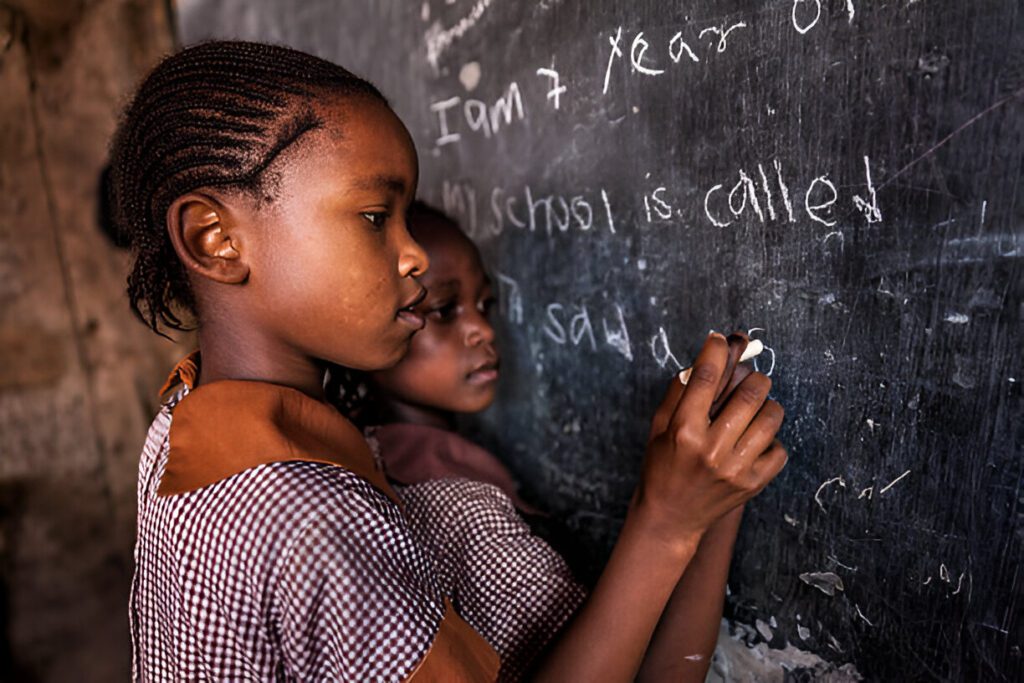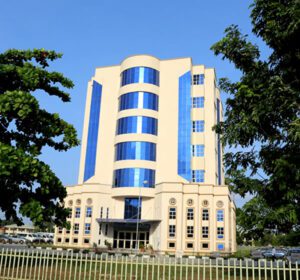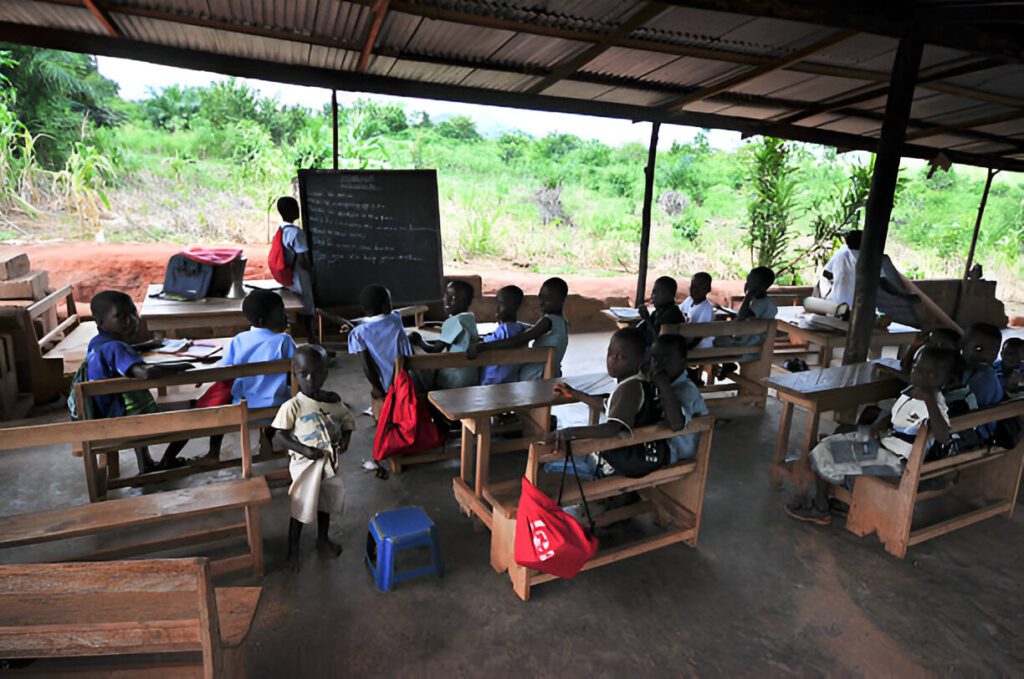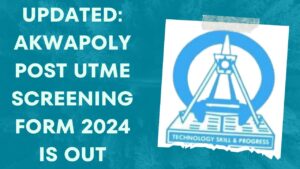Nigerian education system is diverse and complex, shaped by its historical, cultural, and socioeconomic context. With a population exceeding 200 million people, the country faces unique challenges and opportunities in delivering education to its citizens.
This article provides the hidden top secrets about Nigerian Education System that they don’t want you to know, It also contains a comprehensive overview of the structure, key challenges, and future prospects of the Nigerian education system.
Historical Context of the Nigerian Education System
Pre-Colonial Education Systems
Before colonization, Nigeria had a robust indigenous education system tailored to the needs of local communities. Learning was informal, focusing on trades, moral values, family life, and social responsibilities. Traditional systems like Qur’anic schools in the northern regions and vocational apprenticeships in other parts played significant roles in transmitting knowledge and skills.
Colonial Era and the Introduction of Western Education
Western-style education was introduced by Christian missionaries in the 19th century. The British colonial government later formalized the system, establishing government-run schools and a curriculum centered on reading, writing, arithmetic, and religion. However, this system largely excluded the majority of the population, especially in rural areas.
Post-Independence Educational Reforms
After gaining independence in 1960, Nigeria embarked on various reforms aimed at expanding access to education. The government introduced policies to unify the educational system, establish universities, and develop a national curriculum. Despite these efforts, regional disparities and the challenge of providing quality education to all citizens have persisted.
Legal and Policy Framework in Nigerian Education System
National Policy on Education
The National Policy on Education, introduced in 1977 and periodically revised, serves as the backbone of Nigeria’s education system. It outlines the objectives, structure, and guidelines for the administration of education at all levels, emphasizing the need for functional, scientific, and technological education.
Role of Federal and State Governments
Nigeria operates a federal system of governance, with both the federal and state governments playing key roles in education. While the federal government oversees tertiary education and policy formulation, state governments are primarily responsible for primary and secondary education. This division often results in disparities in educational quality across regions.
Key Legislation Shaping Education
Several laws and policies have been enacted to promote education in Nigeria, including the Universal Basic Education Act (2004), which made nine years of education (six years of primary and three years of junior secondary) compulsory and free. Other key legislation includes the Child Rights Act (2003) and the National Commission for Colleges of Education Act (1989).
Structure of the Nigerian Education System
Basic Education (Pre-primary and Primary Education)
Universal Basic Education (UBE) Scheme
The UBE program was introduced in 1999 to provide free and compulsory education for children aged 6 to 15. It aims to reduce the number of out-of-school children and improve literacy rates across the country.
Curriculum and Learning Outcomes
The primary school curriculum focuses on developing basic literacy, numeracy, and life skills. Subjects include mathematics, English, social studies, and basic science. However, there is often a gap between the curriculum and actual learning outcomes due to inadequate resources and poorly trained teachers.
Crisis in Elementary Schooling
Nigeria faces a severe crisis in elementary schooling, with millions of children out of school, particularly in northern regions affected by insurgency and poverty. Gender disparity remains a significant issue, with fewer girls attending school compared to boys.
Access, Enrollment, and Gender Disparity
Despite efforts to boost enrollment, challenges such as poverty, cultural practices, and insecurity have hindered progress. Girls, especially in rural and northern regions, are disproportionately affected by early marriage and other societal norms that limit their access to education.
Secondary Education in Nigeria
Junior Secondary Education (JSS)
The first three years of secondary education (JSS 1–3) focus on consolidating the basic skills learned in primary school. Students are introduced to more subjects, including integrated science, business studies, and vocational education.
Senior Secondary Education (SSS)
The final three years of secondary education (SSS 1–3) prepare students for higher education or vocational training. At the end of this cycle, students take the Senior School Certificate Examination (SSCE), which is essential for admission to tertiary institutions.
Senior School Certificate Examination (SSCE)
The SSCE is conducted by the West African Examinations Council (WAEC) and the National Examinations Council (NECO). It assesses students’ proficiency in subjects and determines their eligibility for university admission.
Private vs Public Schools: Quality and Equity Issues
While private schools often offer higher-quality education due to better funding and facilities, the vast majority of Nigerian students attend underfunded public schools, where quality and equity issues persist.
Vocational and Technical Education (TVET)
Integration into Secondary Education
Vocational education is integrated into both junior and senior secondary education to equip students with practical skills. However, the implementation of vocational training programs has been inconsistent, and the infrastructure needed to support such programs is often lacking.
Government and Private Initiatives
Both government and private sector initiatives have sought to revitalize technical and vocational education in Nigeria. Organizations such as the Industrial Training Fund (ITF) and the National Directorate of Employment (NDE) play vital roles in providing vocational training and skills acquisition programs.
Key Challenges and Future Directions
Challenges facing TVET in Nigeria include poor funding, outdated curricula, and limited industry collaboration. Future reforms must address these issues to make vocational education a viable alternative for students.
Tertiary Education in Nigeria
Universities: Public vs Private
Nigeria’s higher education system includes public and private universities. Public universities are often overcrowded and underfunded, leading to strikes and disruptions in academic activities. Private universities offer an alternative but are often expensive and accessible to only a small segment of the population.
Colleges and Polytechnics
In addition to universities, Nigeria has colleges of education and polytechnics that focus on teacher training and technical education. These institutions play a crucial role in producing the skilled workforce needed for national development.
Teacher Education Institutions
Teacher education is a critical component of Nigeria’s education system. Colleges of education and universities offer specialized programs to train teachers for primary, secondary, and tertiary education levels.
Degree Programs
Bachelor’s Degree
The typical duration for a bachelor’s degree in Nigeria is four to six years, depending on the field of study. Admission is competitive, with students required to pass the Unified Tertiary Matriculation Examination (UTME) and post-UTME screening.
Graduate Programs (Master’s and PhD)
Graduate programs offer opportunities for advanced study and research in various fields. Master’s programs typically last two years, while PhD programs can extend up to six years or more.
Professional Degrees and Certifications
Professional programs such as medicine, law, and engineering have specific accreditation requirements and often include additional examinations before graduates can practice.
University Degree Classification and Grading System
Nigeria uses a classification system for undergraduate degrees, ranging from First Class to Third Class. Grading is based on the Grade Point Average (GPA) system, with First Class degrees awarded to students with a GPA of 4.5 or above (on a 5.0 scale).
Admission Processes (JAMB and Post-UTME)
The Joint Admissions and Matriculation Board (JAMB) administers the UTME, which is the primary route for gaining admission to Nigerian universities. Many universities also require candidates to take a post-UTME exam to further screen applicants.
Key Challenges in Nigerian Education System
Insufficient Infrastructure and Learning Resources
Overcrowded Classrooms
Nigeria’s education system suffers from a severe shortage of classrooms, leading to overcrowded conditions, particularly in public schools. This hampers effective teaching and learning.
Outdated Learning Materials
Many schools use outdated textbooks and teaching aids, which negatively affects the quality of education. Digital resources and access to modern technologies are still limited in most parts of the country.
Underfunding and Financial Constraints
Public Sector Budget Allocations
Education is consistently underfunded in Nigeria, with budget allocations falling below the recommended 15-20% of the national budget as suggested by UNESCO. This underfunding affects every level of education, from primary schools to universities.
Private Sector Contributions
While private institutions have stepped in to bridge the gap, they often cater to only a small segment of the population. The majority of Nigerians still rely on the underfunded public education system.
Academic Corruption and Examination Malpractices
Causes and Effects
Academic corruption is a significant problem in Nigeria, with issues ranging from bribery in admissions processes to examination malpractices. This undermines the integrity of the education system and devalues academic qualifications.
Government and Institutional Responses
Efforts to curb corruption include the introduction of stricter examination protocols and policies aimed at promoting transparency in university admissions and administration. However, much work remains to be done to tackle the root causes of corruption.
Teacher Quality and Training
Challenges in Teacher Recruitment
Teacher shortages and low pay contribute to the poor quality of education in many Nigerian schools. Additionally, the recruitment of unqualified teachers remains a widespread issue.
Professional Development Programs
There is a growing recognition of the need for continuous professional development for teachers. However, funding for such programs is often inadequate, limiting their impact.
International Mobility Trends: Nigeria’s Role in African Student Migration
Top Destination Countries for Nigerian Students
Nigerian students are increasingly seeking education abroad, with popular destination countries including the United States, United Kingdom, Canada, and South Africa. These countries offer better opportunities for quality education, research, and professional growth.
Factors Driving International Student Mobility
Limited University Seats in Nigeria
One of the main factors driving Nigerian students abroad is the limited number of seats available in Nigerian universities. The demand for higher education far exceeds the capacity of local institutions.
Academic Opportunities Abroad
Many Nigerian students choose to study abroad to access better academic facilities, high-quality programs, and diverse cultural experiences
Government and Educational Reforms in Nigerian Education System
Recent Policy Reforms
The Nigerian government has introduced several reforms aimed at improving the education system, including expanding the UBE program and increasing funding for tertiary education. These reforms are intended to address some of the systemic issues plaguing the sector.
The Role of International Organizations (e.g., UNICEF, UNESCO)
International organizations such as UNICEF and UNESCO are actively involved in supporting Nigeria’s education system. These organizations provide funding, technical assistance, and policy advice to help the country meet its educational goals.
Private Sector and NGO Involvement
Non-governmental organizations (NGOs) and private sector actors are also playing an increasingly important role in education in Nigeria. They are involved in areas such as teacher training, provision of learning materials, and promoting access to education in underserved regions.
Future Prospects of Nigerian Education System
E-learning and Technological Integration
Online and Distance Education Platforms
The rise of online learning platforms, accelerated by the COVID-19 pandemic, offers new opportunities for Nigerian students. Institutions are increasingly adopting digital technologies to provide remote education, especially in tertiary institutions.
Digital Learning Initiatives in Rural Areas
While urban areas are seeing improvements in access to digital learning, rural areas continue to lag behind. There is a need for more targeted initiatives to bridge the digital divide and ensure equal access to online education.
Promised Reforms and Development Agendas
Universal Basic Education Expansion
The government aims to expand the UBE program to cover more children and address the challenges of access, quality, and inclusivity. Ensuring that all children, regardless of location or socioeconomic status, receive quality education is a top priority.
Improved Teacher Training Programs
Efforts are also being made to improve the quality of teacher education in Nigeria. Programs focused on recruiting, training, and retaining qualified teachers are essential for achieving the country’s educational goals.
Conclusion on Nigerian Education System
The Nigerian education system is evolving but faces significant challenges that require urgent attention. While there have been strides in expanding access to education, issues such as underfunding, academic corruption, and inadequate infrastructure persist. However, ongoing reforms, along with increased involvement from international organizations, NGOs, and the private sector, offer hope for a brighter future. With sustained efforts, Nigeria’s education system can meet the needs of its growing population and contribute to the country’s social and economic development.






